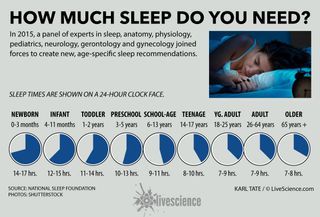In today’s digital age, screen time has become an integral part of children’s lives. From smartphones to tablets, children are exposed to screens in various forms for entertainment, education, and communication. While technology offers numerous benefits, excessive screen time can be detrimental to a child’s overall well-being. Therefore, it is crucial for parents and guardians to manage and monitor their children’s screen time effectively.
The Impact of Excessive Screen Time
Excessive screen time can have a negative impact on various aspects of a child’s development. Research has shown that extended screen time can lead to issues such as:
Obesity: Sedentary activities like watching TV or playing video games often lead to a lack of physical activity, increasing the risk of childhood obesity.
Poor Academic Performance: Spending excessive time on screens may interfere with a child’s focus and attention span, resulting in reduced academic performance.
Sleep Problems: The blue light emitted by screens can disrupt sleep patterns, making it difficult for children to fall asleep and get adequate rest.
Behavioral Issues: Increased screen time has been linked to behavioral problems such as aggression, irritability, and difficulties in social interactions.
Setting Healthy Screen Time Limits
Establishing clear and realistic screen time limits is essential to ensure that children have a healthy balance between digital activities and other aspects of life. Here are some tips to help you set effective screen time limits:
Understand Age Recommendations: Different age groups have different recommended screen time limits. Familiarize yourself with these guidelines and adjust accordingly for your child’s age.
Set Clear Rules: Communicate clear rules and expectations regarding screen time with your child. Let them understand the importance of balancing screen time with other activities like outdoor play, reading, and spending time with family and friends.
Encourage Alternative Activities: Provide a variety of alternative activities that your child can engage in, such as sports, arts and crafts, or joining clubs. Encouraging these activities motivates children to spend less time in front of screens.
Utilize Parental Control Tools: Make use of parental control features available on devices and apps. These tools allow you to set time limits, block certain content, and monitor your child’s screen usage.
Creating a Screen-Free Environment
While setting limits is crucial, it’s also important to create a screen-free environment to reduce the temptation of excessive screen time. Here are some strategies to implement:
Designate Screen-Free Zones: Establish specific areas in your home where screens are not allowed, such as bedrooms or the dining table. This helps promote family interaction and quality time.
Lead by Example: Children often emulate the behavior of their parents or guardians, so it’s vital to model healthy screen habits yourself. Minimize your own screen time and engage in offline activities, showing them alternative ways to spend leisure time.
Encourage Digital Detox: Plan regular activities that promote a break from screens, such as outdoor outings, game nights, or reading time. Involve the whole family in participating and make it a fun and enjoyable experience.
Open Communication and Monitoring
Finally, maintaining open communication with your child and regularly monitoring their screen time is essential for effective management. Here are some guidelines:
Talk to Your Child: Engage in open and honest conversations about the importance of responsible screen time and the potential risks of excessive use. Teach them how to make informed decisions and self-regulate their digital habits.
Monitor Content: Regularly review the content your child is exposed to, ensuring it is age-appropriate and aligns with your family values. Be aware of any signs of potential addiction or negative effects.
Use Technology Wisely: Technology itself can aid in screen time management. Utilize apps and software that provide advanced monitoring features, allowing you to track usage and set healthy boundaries.
Conclusion
Screen time management plays a crucial role in promoting the well-being and healthy development of children. By setting healthy screen time limits, creating a screen-free environment, and maintaining open communication, parents can help their children build a balanced and responsible relationship with technology. Remember, moderation is key, and the ultimate goal is to empower children to make mindful choices when it comes to their screen time.




